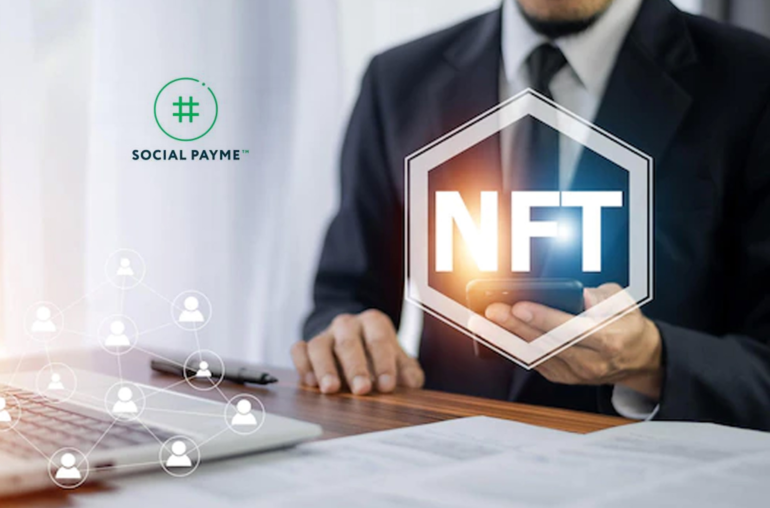Even in the midst of the unprecedented non-fungible tokens (NFTs) boom of late 2021, advocates of the concept, like Capital Sports Media chief executive Tim Mangnall, were insisting that the growth of such digital assets in sport was unlikely to be linear.
So far, 2022 has proved that to be the case. Whilst there have been notably successful NFT projects in sport, several underwhelming release ‘drops’ have flopped, leaving rights-holders to be pilloried by a skeptical press.
Furthermore, a cryptocurrency crash, which has wiped off two-thirds of the value of the top 500 crypto assets since November 2021, has had a significant impact on NFTs. Additionally, broader volatility in the financial markets, including surging inflation, has not helped.
In the closing months of 2021, Mangnall was keen to stress how it would take at least two or three years – possibly longer – before the full scale of the opportunity in NFTs is realised in sport. He urged rights-holders to adopt a sustainable long-term vision in collaboration with carefully selected partners, and to avoid chasing short-term revenue from the outset.
Unfortunately, many did not heed the warning. Even so, nearly a year on, he believes there is no reason to alter his optimistic long-term outlook.
“Clubs still have a huge amount to learn about NFTs and there remain lots of misconceptions in the industry,” Mangnall says. “Fundamentally, clubs still do not understand the opportunity around NFTs. The majority of NFT ‘drops’, particularly in football, have been focused on a moment in history or an artwork, but after they are released, everyone moves on quickly and forgets about them.”
The challenges in this market can be best summed up by Liverpool FC’s contentious foray into NFTs in early April. Critics of the release cited an apparent lack of utility and interaction with buyers, with the artworks themselves also dividing opinion.
Less than a week after the launch, it emerged that Liverpool had raised some £1.125m through the initial drop, with nearly 10,000 tokens sold. However, that accounted for only 5.7% of the NFTs available, raising questions about whether the balance of short-term gains versus sustainable growth had been achieved.
Capital Block, a division of Capital Sports Media that advises sports clubs and other entities worldwide on their NFT strategies, is ideally placed to evaluate the success or failure of NFT strategies so far in a tumultuous year for the sector. On this point, Mangnall is frustrated to see projects fail to maximise their potential due to basic strategic errors at the outset.
“We have seen far too many drops that appear to be standalone. If that is the case, then the strategy is wrong,” Mangnall adds.
“Particularly in football, we have not seen much longevity in NFT strategies. Clubs may generate income from the first drop, but fans are unlikely to come back, whereas they should be creating an ecosystem for their digital assets and encouraging people to return again and again.
“We have also seen some NFT platforms try to push their own agenda too much through partnerships with clubs and rights-holders. Above all, it is important to focus on engagement through a narrative and utility if you want it to be something that resonates with the audience.”
Mangnall points out that the utility of NFTs – essentially the tangible benefits that are bundled into the buyer’s package – can and should be updated regularly. A number of the more savvy rights-holders in the space have worked with partners to provide unique benefits and experiences as part of an NFT purchase.
For the 2022 Australian Open tennis grand slam, for example, fans were offered NFTs that automatically updated with ball and match metadata in real time. The NBA All-Star VIP Pass NFT Auction, supported by Dapper Labs, included VIP passes and various other unique perks, including shooting hoops on future All-Star game courts and exclusive merchandise.
“I do still take my hat off to the brands that are pushing NFTs and exploring this space. As an industry, there is still so much to learn in this space, and we are at a very early stage,” Mangnall says.
“A sports NFT project should not be all about revenue, as that will immediately alienate the fan base. I can’t stress this more: if the NFT project is just sell, sell, sell, then it will become unsustainable.”
Focusing on short-term revenue can also cause reputational damage, not only for the club, but also for the broader NFT space, Mangnall adds.
“What’s a concern for me is how negative experiences can damage a fan’s perspective of NFTs,” he says.
With that in mind, Mangnall believes ‘NFTs’ need a rebrand.
“Fans do not like the word ‘NFT’ as they think it’s a money grab or a scam,” he explained. “When we talk about NFTs, they really represent the technology behind the digital product, so we should really be treating them as products.
“I guarantee that the organic interest would be tenfold for a ‘digital ticket’ in comparison with an ‘NFT ticket’ at the same event. Ultimately, people are going to start buying digital products and collectibles, and they don’t actually need to know they are NFTs. At Capital Block, we are working hard on educating partners and changing the narrative.”
Despite the growing pains of a sector that was barely recognised just over a year ago, Mangnall remains confident that the embryonic development of such digital assets will ultimately lead to the creation of one of the most effective fan engagement tools in sport.
What sports entities do in the meantime remains to be seen. However, Mangnall believes that, sooner or later, they will face a crossroads.
“There are going to be two types of sports organisations,” he concludes. “There will be those who accept that digital assets are here to stay, but they will believe they have other priorities, and then there will be others who will work with agencies like Capital Block to develop a stronger connection with their fans. One thing is for certain though: digital products aren’t going anywhere.”
SportBusiness is the most trusted global intelligence service, providing unique news, analysis, data, consulting and events.
SBG Companies Limited
Park House, 116 Park Street,
London, W1K 6AF, UK
Telephone: +44 (0) 20 7265 4100
Email: info@sportbusiness.com
SportBusiness Group America, LLC
1001 Brickell Bay Drive, Suite 2402, Miami, FL 33131, USA
Telephone: +1 305 470 2483
Email: info@sportbusiness.com
SportBusiness Group Asia Pte Ltd
3 Temasek Ave, Centennial Tower #18-01, Singapore 039190
Telephone: +65 6797 6900
Email: info@sportbusiness.com
For a global perspective on the business of sport
News, Insight and opinion from New York, London and Singapore. We cover the issues and the people that shape global sport every day.
Business-critical deals data and analysis for anyone buying and selling media rights
Our service, powered by the TV Sports Markets team, is the most trusted and independent source of media rights values and deals globally in one online platform.
Global sponsorship deal data and activation case studies for sponsorship executives
Data and analysis on the relationships between leading sport properties and the brands that sponsor them. Includes a global database of 30k deals and a growing archive of sport sponsorship activation case studies.
Strategic and commercial advice and reports based on data-driven insight
We assist clients in providing detailed market studies, analysis of sponsorship and media rights value, assess their strategies and budget plans for them to base educated business decisions on. Apart from tailored bespoke reports for clients we release market studies on key media and sponsorship properties.
SportBusiness has a strict internal policy governing the collection, analysis and cleansing of data. This involves the application of a proprietary set of rigorous data standards, with vetting by trusted experts to ensure unparalleled data quality and accuracy.
©2022 SBG Companies Limited or its affiliated companies, All rights reserved.
Site designed and built by interconnect/it


